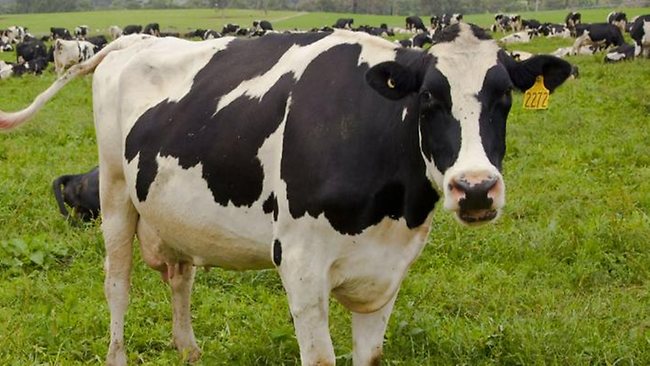GE-cow produces low allergy milk
MILK produced from a cow genetically engineered by New Zealand scientists may cause fewer allergic reactions, while increasing cheese yields.

NEW Zealand's AgResearch scientists have genetically engineered a cow to produce high protein milk less likely to cause allergic reactions in humans.
The researchers, led by Dr Anower Jabed, used a process called RNA interference that inhibits target genes to engineer the dairy cow, having first tested the process in a mouse engineered to mimic the mammary gland of a sheep.
Analysis of milk induced hormonally from the calf showed an absence of the milk protein beta-lactoglobulin (BLG), a whey component known to cause allergic reactions, but an increase in casein milk proteins.
The researchers, based in Hamilton, say the BLG-depleted milk not only has potentially hypoallergenic properties, its high casein content should increase calcium levels and cheese yields.
"Ultimately, natural-lactation milk will be required to confirm the changes to the milk composition and fully assess the functional properties of this milk," they say in a paper published on Tuesday by the US Proceedings of the National Academy of Sciences.
In developed countries, two to three per cent of infants are allergic to cow's milk proteins in the first year of life.
BLG is produced in cows and other ruminants but not in human milk, so it is not surprising that it constitutes a major milk allergen, the scientists say.
To reduce the allergenic potential of milk, the dairy industry has developed hypoallergenic formulas by hydrolysing whey proteins.
But this is costly and may cause milk to taste bitter.
In the future, the scientists suggest their genetic engineering methods could potentially target additional genes and modify other livestock traits.



